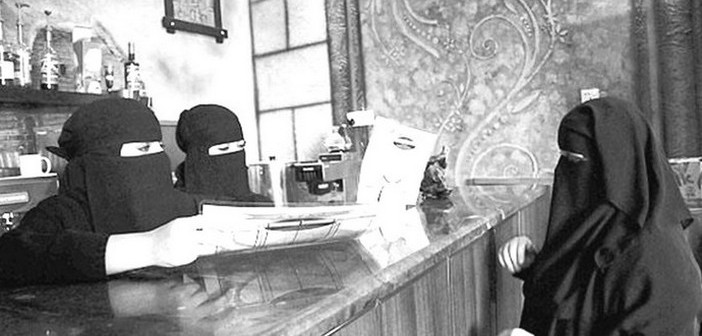Riyadh… Gregorian New Year was just another day of the week in Saudi Arabia, but as the Kingdom enters the decennial year of the reign of King Abdullah, a quick reflection on the past decade reveals a society undergoing enormous change, with no signs of stopping anytime soon. The nation is undertaking a massive rearrangement: in the chief cities of Riyadh and Jeddah, extensive metro and railway projects have disturbed and redirected traffic through 2020; entire new economic and financial cities are being built on both the west and east coasts; new standards issued by the Ministry of Education have forced all students to come back to school right before winter holidays to be re-examined on their subjects cumulatively, to the chagrin of many students and their parents alike; check-points, reminiscent of the Islamist insurgencies of the 1990s and early 2000s are appearing once again; and, as more sectors are opened to women, more and more women are working.
Rapid change is not limited to the domestic scene. Abroad, the Kingdom finds itself in an entirely new, unchartered region. Despite disagreement over the future of Syrian leadership, Riyadh and Tehran find themselves together against the threat posed by Daesh. Saudi Arabia is one of the few remaining Arab states unscathed by the violence and turmoil the Arab uprisings and the subsequent radical insurgencies have brought to the Kingdom’s neighbours in Bahrain, Egypt, Iraq and Yemen. Economically too, Saudi Arabia faces an oil glut at levels unseen since that of the 1980s. But while the Kingdom of the 1980s was a reactionary society attempting to understand the trauma that was the Grand Mosque Seizure of 1979; the Saudi Arabia of the 21st century is one of a modern, rapidly evolving and changing society, with long-term changes deeply entrenching themselves slowly but surely.
Economic Necessity of Women in the Workplace
Perhaps no change is more, shall we say, “revolutionary,” than that of the ever-increasing amount of Saudi women entering the workplace. According to the Central Department of Statistics and Information, in the fourth quarter of 2013, the unemployment rate amongst Saudi women was 32% compared to overall adult unemployment rate of 5.5%. A decade ago in 2005, only 76 women in the Kingdom worked as sales associates. By 2012, the number of women in the same field was 108, and in 2013 it had reached 774: 716% growth over the course of a single year! Like the introduction of public education for girls during the reign of the late-King Faisal during the 1960s and 1970s, the introduction of what are termed “feminized sectors” in the labour market are not without plenty of detractors. Senior members of the Kingdom’s religious establishment have openly voiced disapproval and protested against both the directives of the Ministry of Labour for the “feminization” of certain sectors, as well as the ever-expanding list of fields open to female employees. The Ministry, for its part, does not attempt to be a neutral voice in the debate on women working: it is clearly in favour. But why?
Contemporarily in Saudi Arabia, a G20 member-state with nearly 20 million citizens, only 1.5 million work in the private sector, leaving it to be dominated by migrant workers from Asia, the Arab world, Europe and North America. While large-scale public projects, such as Princess Nora University in Riyadh and the Grand Mosque Expansion Project in Makkah and Madinah, provide for the coming years employment for Saudis, it would be impossible for Saudis to become a majority in the private sector workforce without the employment of women. As the Kingdom faces a decline in oil prices and a consistent increase in population and mortality, it has become a mere economic decision: the money invested in Saudi women from birth to death (via universal healthcare, universal education, massive scholarships to study abroad, etc.) has not, as of yet, been fully beneficial to the State. In prioritizing a diversified economy – not entirely dependent on petrol exports – and in prioritizing a private sector where citizens comprise the majority of the human capital in a knowledge-based economy – the right of women to work has become the need of women to work.
Hesitancy to Social Change
The employment of women is seen by many in Saudi Arabia – men and women alike – as an existential threat to the very essence and foundation of the Arab and Muslim society of the Kingdom: the family. Setting aside the more imaginative arguments provided by some in the religious establishment against women working, the argument that widespread employment of women will destroy the Saudi family (protected and recognized in the Basic Law of the Kingdom as the fundamental unit of society) merits exploration and understanding. Many Saudi women voice their fears that widespread employment of women will actually lead to pressure from their husbands or families to work in order to gain a second-income. Many men express fears that the entrance of women in the workplace will lead to a decrease in salaries, as the supply of skilled, Saudi workers is increased. These are the diversions and “road bumps” the Kingdom is dealing with during this period of widespread social change.
Like the construction projects happening throughout the Kingdom making daily life for the next few years uncomfortable, the construction of a “Saudized” knowledge-based economy too will not be comfortable for many in Saudi society: it will not happen overnight, there will be delays, there will be corruption and wrong-decisions made along the way (for the time being, for example, many of the jobs being “feminized” and opened to female employment are in the service sector, rather than knowledge-based), and it will cause a lot of confusion and exploration of the unknown. Indigenous, organic solutions to solving these issues and changes are the only feasible option for long-term success of such a critical social change. At the forefront of these efforts to secure the equal employment rights and opportunities within the reality of contemporary Saudi Arabia – are none other than Saudi women, organized as charities and societies, themselves.
Women’s Groups at the Forefront
Ranging from the large, national charities such Al Nahda and Glowork, to local and regional groups such as Herfa, Al Wafaa, and others; women’s groups have been at the forefront not only of lobbying (large charities often have princesses from the royal family as patrons) on behalf of qualified and skilled job-seeking Saudi women, but also proactively providing formal business skills and training to women with skills in order to maximize the success of independent, female owned and operated small and medium-sized enterprises. Together with business and tech incubators, the services and skills being provided to women to form SME’s by women’s charities and groups represents the single-largest effort to bring Saudi women into the envisioned knowledge-based economy.
Pragmatism and Progress
These changes are no different to the growing pains of any developing country, or a developed country for that matter. Despite the contradictory image of the Kingdom seen abroad, the foundation of modern Saudi Arabia in 1932 itself was a microcosm of the pragmatic and gradual change that characterizes the country and its people. For thirty years from 1902 to 1932 battles were fought, alliances were forged, dynastic marriages were celebrated, support of local elites was won, religious practices were reformed, etc. over the course of a 30-year process – in stark contrast to the revolutionary nature of the foundation of so many of the Kingdom’s fellow Arab states.
Despite the trauma the nation experienced from the infiltration of the public education system by Muslim Brothers from the 1960s until the 1990s, Saudi society has been on a relative consistent path of gradual change and progress. Likewise, albeit without the revolutionary fervour and ideological zeal of Arabs in nearby lands, the Saudi Arabia of 2032 will likely be one extremely different to today. In an Arab world where a so-called “Springtime of Nations” is turning into what looks to be a “Decade of Insurgency,” the pragmatic, gradual approach to change in Saudi Arabia is a flicker of hope that one day, throughout the Arab world, pragmatism and indigenous, gradual and organic change can one day overcome ideology and revolutions.




